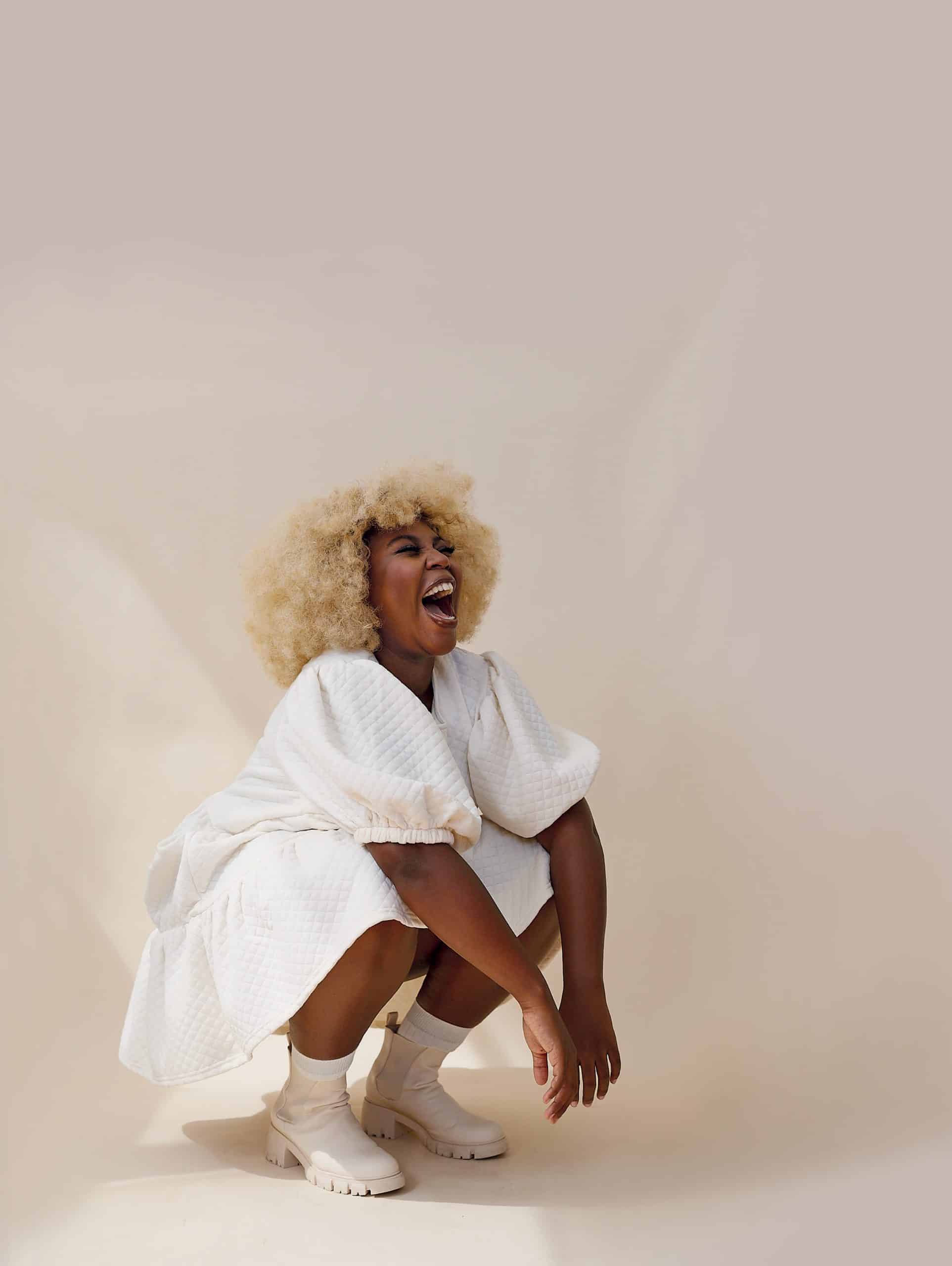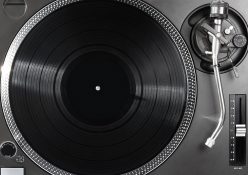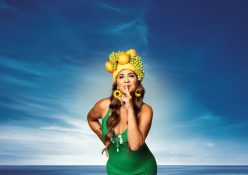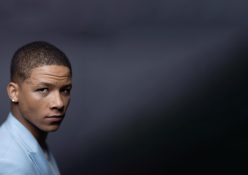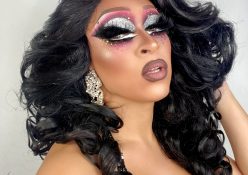Even though comedian Lerato Sokhulu has spent most of her professional life behind the scenes, it’s clear she was born to be on stage. Ingrid Corbett sat down with ‘Rapunzulu’ to find out how she’s carved out a space for herself as a comedian in a male-dominated industry.
Turns out Lerato Sokhulu is not just a funny woman. When I met her in the lobby at the Baxter Theatre a few months ago, we joked a bit back and forth and she made me laugh, so I started following her on Instagram. Yes, she hosts a stand-up show every month called Selective Comedy, and yes, she’s as hilarious as she is loud. But I was delighted to discover that she has a number of other talents…
When did you figure out you were funny?
My dad was the comedian of our family, and on my mom’s side, everyone is a jokester. I was always the class clown, but I never thought it would turn into a career.
Where did you start out?
I matriculated in Durban and then moved to Cape Town to study acting and producing at AFDA in 2007. I spent some time in Joburg a. er I graduated but couldn’t fi nd my focus, so I moved back to Durban.
In 2015, I got a job as a radio presenter for Gagasi FM, a regional youth station. I spent a few years there and, in 2017, moved to Vuma FM, which had a more mature audience. I hosted a night-time show and started a slot that featured stories about the crazy stuff that happens in the last taxi ride home.
I’d tell my own stories about tired, drunk, crazy people, and then open up the platform for readers to call in with their own tales. The anecdotes were hilarious, and the show got great ratings. I was nominated for a Liberty Radio Award for Best Night-Time Show. I didn’t win, but I still consider it a milestone moment in my career.
View this post on Instagram
You left radio and got into television and film…
Yes, I’d always had a knack for writing – a skill I honed while crafting content for my radio show – and I wanted to cut my teeth in TV. I moved back to Cape Town and, in 2018, got a job at Afternoon Express as a script writer and content producer. I wrote the whole show, as well as the inserts and the adverts.
How did you transition from behind the scenes to centre stage?
After a few years, I realised that I wanted to be in front of the camera. In 2019, I hosted the Shnit Film Festival, and Kagiso Lediga and Dr John Kani were in the audience. After the show, Kagiso asked me what I did for a living. When I told him, he said I belonged on the stage and I believed him! In early 2020, I attended a comedy evening and as I watched the comedians run through their routines, I thought to myself: maybe I should try it.
I went up to the event organiser and pitched myself. ‘I’m not a comedian, I said, but a lot of stuff has happened to me and I think I’m funny.’ So they gave me a chance, and I had my first 10 minutes on stage in a comedy show at the end of February. I was on fire. This, I thought, is what I should have been doing my whole life. And then the pandemic happened. One minute I was behind the scenes, and then there was no scene.
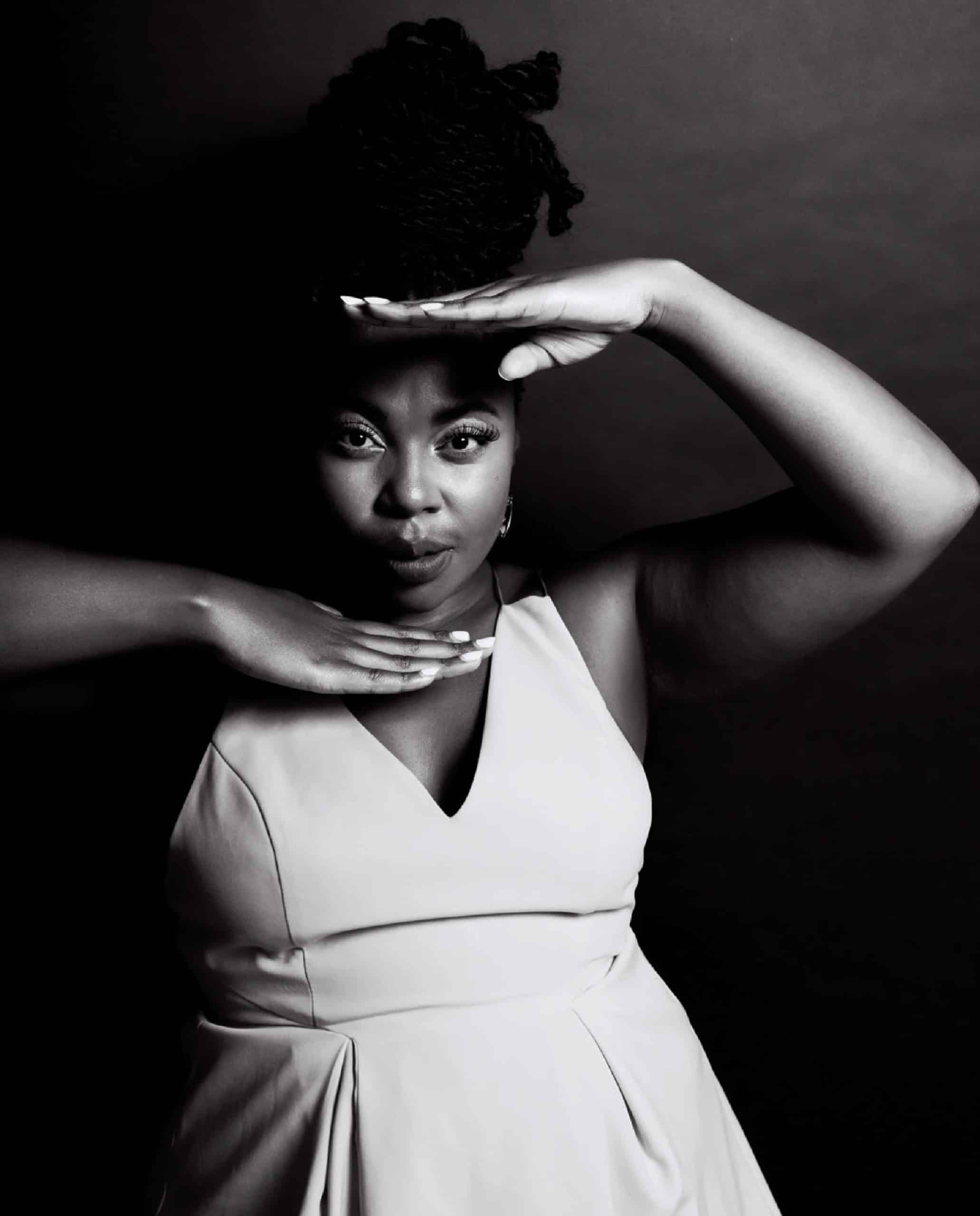
Did you find it quite difficult to get back on the horse?
In 2021, when things finally started opening up again, I tried to get a show at least twice a month at different venues, performing wherever I could. Deciding to put myself out there helped to strengthen my standing as a comedian.
But most of the gigs I was offered were freebies. I didn’t want to work for free. I was trying to make a career out of this; it wasn’t just a pastime. I felt comfortable with my talent and what I could offer people, and I was fortunate that I already had an audience.
Is that how your show, Selective Comedy, was born?
I wanted to have my own platform, and I wanted a show that I could curate myself. So I launched Selective Comedy at Selective Live (I know, not exactly the world’s most difficult exercise in branding), a venue on Buitengracht Street. Initially I only wanted to feature female comedians, as I felt that this industry, like so many others, was dominated by men. But towards the end of 2022
I changed my mind. The focus of the show is comedy, I didn’t want to make it gender specific or biased. Today, each hour-long show has a line-up of four people, which includes me. The platform isn’t just reserved for established comedians, it’s also an open-mike opportunity for people who believe they are funny enough to entertain an audience and want to give it a shot.
Does the show pay your bills?
Not yet! Voiceover work is still a staple; that has always been my bread and butter, going back to my days in radio. More recently I’ve landed a few roles in TV ads, and I had a cameo role in the local Netflix series Blood & Water.
What topics do you touch on in y our comedy?
Most of the stuff I talk about is quite personal. I don’t comment on politics or history or celebrities. We all go through uncomfortable moments in our lives and I find comedy quite therapeutic. Laughter, as the cliché goes, is usually the best medicine. When you make yourself vulnerable and you can joke about the serious stuff, it takes some of the weight off. What’s next for you? I want to take Selective Comedy to Joburg and Durban, and make it a national show…
I GO BY RAPUNZULU ON STAGE. GROWING UP, WE LIVED IN A DOUBLE-STORY HOUSE ON A BUSY ROAD. I HAD A VERY STRICT GRANDMOTHER WHO WOULDN’T LET ME GO OUT. I FELT LIKE RAPUNZEL.
View this post on Instagram



